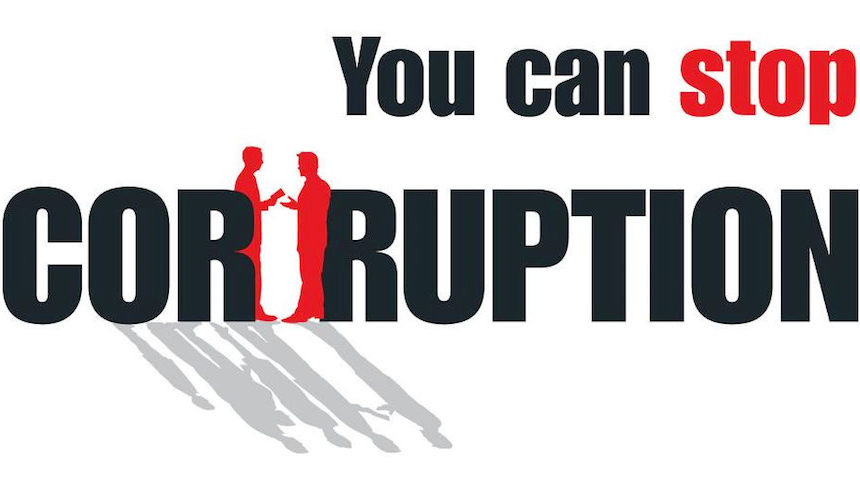Introduction to Lokayukta:
Lokpal is an anti-corruption ombudsman organization in India and Lokayukta in the Indian states. Lokpal has jurisdiction over all the Members of Parliament and Central Government employees and Lokayukta is its counterpart in all states. Ombudsman is a public advocate usually appointed by the Government but with significant independence who is charged with representing the interest of public by insvestigating and addressing complaints of maladministration or violation of rights.
Lokpal and Lokayukta was formed for redressal of citizens’ grievances as a result of the special interim report on “Problems of Redressal of Citizens’ Grievance” submitted by The Administration Reforms Commission (ARC) headed by Morarji Desai submitted in 1966. Lokayukta Act was enacted for investigations into allegation and grievances in respect of administrative actions relatable to matters specified in List II and III of the 7th Schedule of Indian Constitution. Lokpal was formed in 2013 after passing The Lokpal and Lokayukta Act, 2013.
Karnataka Lokayukta was established in the Indian State of Karnataka. Ramakrishna Hegde, the then Chief Minister of Karnataka introduced the Lokayukta and Upalokayukta bill in the assembly on 1983. As per the Lokayukta Act, Lokayukta is the person appointed who, either held the office of a judge in the Supreme Court or Chief Justice of the High Court of any State. The Lokayukta is appointed by the Governor of Karnataka on advice of Chief Minister, in consultation with the Chief Justice of the High Court of Karnataka, Legislative Assembly, the leader of the opposition in both houses. He has the power to investigate Chief Minister, all other Ministers, members of State Legislature and all government employees.
Karnataka Lokayukta Fiasco:
However, just like the saying ‘power corrupts, absolute power corrupts absolutely,’ Karnataka Lokayukta, Y.Bhaskar Rao is himself accused with corruption charges. Ironically he was appointed as the Lokayukta a year and a half back after Justice Shivraj V.Patil was exposed in illegal land allotments and was forced to resign. Despite the huge hue and cry from civic agencies, lawyers and general public asking Bhaskar Rao to resign as Lokayukta, he has brazenly chosen to stick to his seat. Section 6 of the Lokayukta Act does not empower the government to remove the Lokayukta.
With initial reports accusing Lokayukta officials of extorting money from government officials came out, Justice Bhaskar Rao, chose to ignore it. When the subsequent report mentioned that these activities took place from the official residence of the Lokayukta, Upa Lokayukta directed the Superintendent of Police, Sonia Narang who initiated the investigation into this matter to continue to probe into this matter in his order dated June 23, 2015.
However, Bhaskar ordered for fresh enquiry by City Civil Branch, which was refused forcing Bhaskar to embarrassingly retract the order. Subsequently, he requested the State Government to constitute independent investigative team, which was accepted with the constitution of Special Investigation Team (SIT). Meanwhile, Justice Bhaskar Rao’s son got a stay order against the investigation requested by Justice Bhaskar Rao making it plain about the ghastly drama that is to unfold in the coming weeks. The present case involving Bhaskar Rao is particularly worrisome, as the accusations are not directly leveled on him but on his son Ashwin Rao.
Karnataka Lokayukta (Amendment) Bill:
This entire episode has moved State Government to introduce a new law that gives it more power to remove Lokayukta from office. The bill was introduced on Friday, 24th July, 2015 and was discussed for two days from July 30, 2015. The bill seeks to give more power to State Government to remove Lokayukta from office, it recommends simple majority of both houses instead of the present two – third majority of members present and voting.
Also, while currently the investigation for removal of Lokayukta is done under Judges (Inquiry) Act, 1968, the new law suggests investigation, hearing and framing of charges within 90 days by the Chief Justice of India or judge appointed by him, following which Lokayukta can be removed with simple majority.
Apart from this, it also restricts Lokayukta from tackling maladministration in the government and prevents Lokayukta from checking the functioning of the institution. The bill, thereby, seeks to restrict the power of the Lokayukta to tackling corruption. The absolute liberty given to them is deemed as the reason why the institution ran an extortion racket to seek monetary benefits.
Moreover, the amendment bill seeks to reduce the qualification of Lokayukta to a Karnataka High Court judge not having less than 10 years experience. Various former High Court and Supreme Court Judges have criticized this move. Former judge, Shivraj Patil, was of the opinion that Act should not be changed with respect to appointment of Lok Ayukta and Upa Lokayukta as the amendment weakens the Act instead of strengthening it. Former Chief Justice, V.S.Malimath termed the amendment hasty and suggested that a committee should be formed to propose the amendments as a change liked this needs a lot of introspection.
Moreover, the amendment has removed entire section 10 of the Act which empower Lokayukta to police to search, break open lockers, seize property or seize anyone. Lokayukta can only conduct enquiries under the Amendment Act while leaves the institution handicapped. Opposition Jagdish Shettar has also mentioned that the amendment was proposed to make the removal process easier. However, the amendments introduced by the government weaken the institution.
Passage of Lokayukta Bill:
Nevertheless, the Government passed the Amendment Bill on 31st July, 2015 with a minor change with regard to removal of Lokayukta. It accepted BJP Member, Jagdish Shettar’s argument that support of simple majority would make Lokayukta a footman under the Government. Therefore, amendment bill mandates the initiation of removal process of Lokayukta with 1/3rd of the members in either house signing the motion and presenting it before Vidhan Parishad or the Vidhan Sabha. After a probe by the Chief Justice of High Court of Karnataka, support of 2/3rd of the legislators is needed for removal of the Lokayukta.
No one is above the law and it is pretty reprehensible that Justice Bhaskar Rao has refused to resign from his position in spite of such weighty allegations, even though he has spent several years dispensing justice and has decided the fate of various people due to everyone’s faith on a Chief Justice’s ability to distinguish between right and wrong.
Yet, he is associated with incapacitating the stature of the very institution that is supposed to keep corruption at bay. I think it is more crucial to have checks and balances in place for the office of Lokayukta. Along with empowering it to investigate cases involving government officials, the institution’s activities should be kept under constant supervision.







